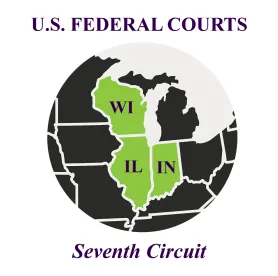In a widely watched case, the Seventh Circuit decided last week that companies that collect individuals’ biometric data may be able to defend their cases in federal court when plaintiffs allege a procedural violation of Illinois’ Biometric Information Privacy Act (BIPA).
In Bryant v. Compass Group USA, Inc., the Seventh Circuit held that certain procedural violations of Illinois’ BIPA constituted actual injuries and therefore satisfied the requirements for federal court standing. Relying on Spokeo, the seminal U.S. Supreme Court case addressing what constitutes an actual injury for standing purposes, the court held that the plaintiff’s allegations, if proven, would demonstrate that she suffered an actual injury based on the fact that Compass did not obtain her consent before obtaining her private information. Therefore, the case could remain in federal court.
The decision now gives defendants that want to defend BIPA claims in federal court a roadmap for their arguments, including access to a larger jury pool, the Federal Rules of Procedure, and other federal court-related advantages. It is also notable because BIPA defendants have attempted to remove BIPA cases to federal court and then file motions to dismiss them for lack of standing. However, the federal courts have typically remanded these cases, forcing defendants back into state court and sometimes even requiring them to pay just costs and any actual expenses, including attorney fees, incurred as a result of the removal.[1]
What Happened in Bryant v. Compass Group USA
In Compass Group USA, a customer sued a vending machine manufacturer after she scanned her fingerprint into a vending machine to set up an account during her employer’s orientation. She then used her fingerprint to buy items from the vending machine.
The plaintiff filed a putative class action lawsuit on behalf of herself and all other persons similarly situated in state court alleging that Compass violated her statutory rights under BIPA by 1) obtaining her fingerprint without her written consent and 2) not establishing a publicly available data retention schedule or destruction guidelines for possession of biometric data as required by the statute.
Shortly after the plaintiff filed suit in Cook County Circuit Court, Compass filed a notice to remove the case to the Northern District of Illinois. Opposing the motion, the plaintiff argued that she did not have federal standing for her BIPA claims because she had not alleged an injury-in-fact as required by Article III.
Compass argued that the plaintiff had alleged an injury-in-fact under Article III, pointing to the recent Illinois Supreme Court case, Rosenbach v. Six Flags Ent. Corp., which held that plaintiffs can bring BIPA claims based on procedural violations, even if they have suffered no actual injury. Rosenbach held that, if a company, for example, fails to comply with BIPA’s requirement of establishing destruction guidelines for possession of biometric data, that violation alone – without any actual pecuniary or other injury – creates an actual injury.
The district court sided with the plaintiff and concluded that Rosenbach merely established “the policy of the Illinois courts” to allow plaintiffs to bring BIPA claims without alleging an actual injury. Rosenbach did not interpret procedural BIPA violations to be actual injuries.
Because the plaintiff’s claims did not establish Article III standing, the district court granted the plaintiff’s motion to remand the case back to state court.
The Seventh Circuit reversed, relying on Spokeo. It interpreted Spokeo as holding that injuries may still be particularized and concrete – i.e., actual – even if they are intangible or hard to prove. The court also cited Justice Thomas’ concurrence in Spokeo that distinguished between private rights (which courts have historically presumed to cause actual injuries) and public rights (which require a further showing of injury).
The court held that the plaintiff had alleged that she suffered an actual injury when Compass collected her biometric data without obtaining her informed consent because this was a private right. The court also relied on Fed. Election Comm’n v. Atkins, 525 U.S. 11 (1998). In Atkins, the Supreme Court held that nondisclosure can be an actual injury if plaintiffs can show an impairment of their ability to use information in a way intended by the statute. The court in Compass similarly held that the defendant had denied the plaintiff the opportunity — and statutory right — to consider whether the terms of the defendant’s data collection and usage were acceptable. As a result, the court held that the plaintiff alleged an actual injury.
By contrast, the court determined that the plaintiff’s other claim – that the defendant violated BIPA by failing to make publicly available a data retention schedule and destruction guidelines for possession of biometric data – implicated a public right and did not cause the plaintiff an actual injury.
[1] See, e.g. Mocek v. Allsaints USA Ltd., 220 F. Supp. 3d 910, 914 (N.D. Ill. 2016) (“Defendant’s professed strategy of removing the case on the basis of federal jurisdiction, only to turn around and seek dismissal with prejudice—a remedy not supported by any of defendant’s cases—on the ground that federal jurisdiction was lacking, unnecessarily prolonged the proceedings. . . . For the foregoing reasons, I grant plaintiff’s motion for remand and attorneys’ fees and deny as moot defendant’s motion to dismiss. Because defendant has not objected to the specific fee amount plaintiff claims, which she supports with evidence in the form of affidavits and billing records, I find that plaintiff is entitled to payment in the amount of $58,112.50 pursuant to § 1447(c).”)




 />i
/>i

